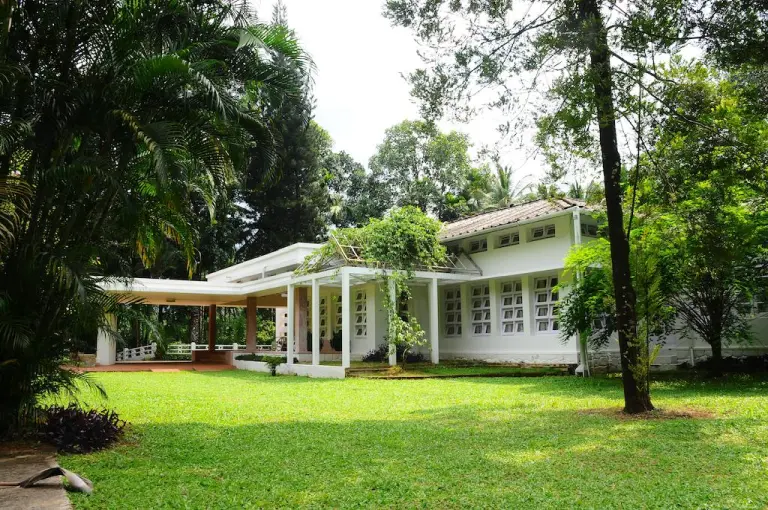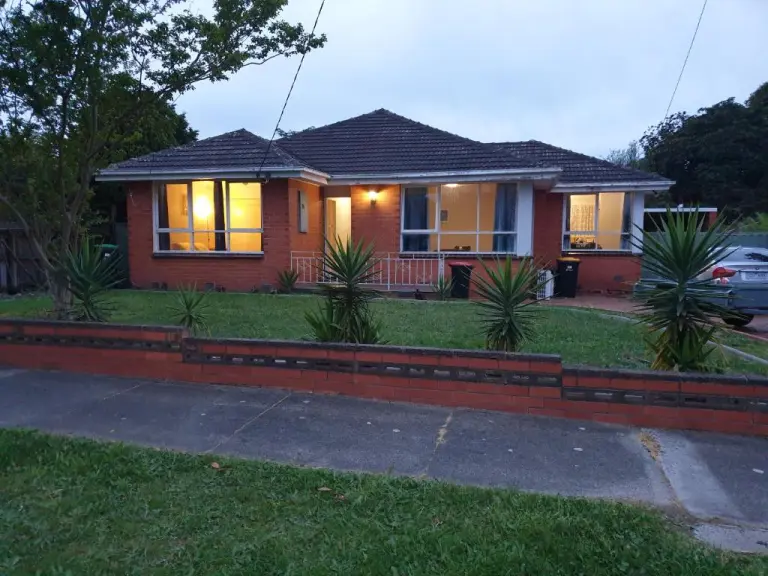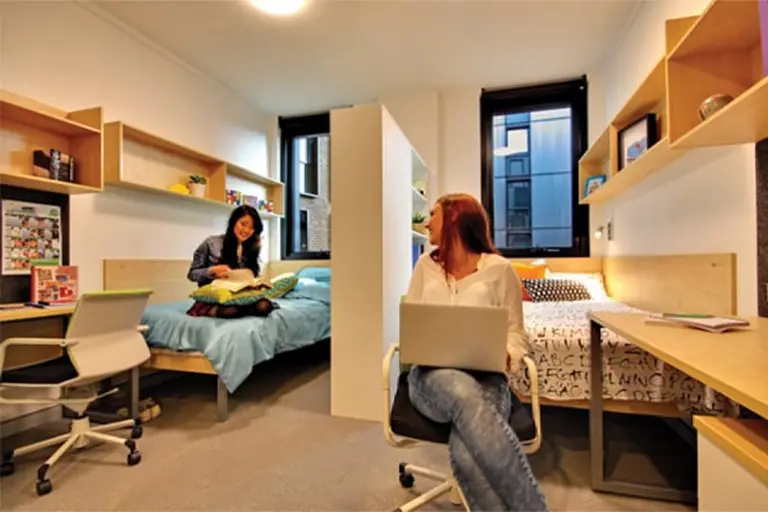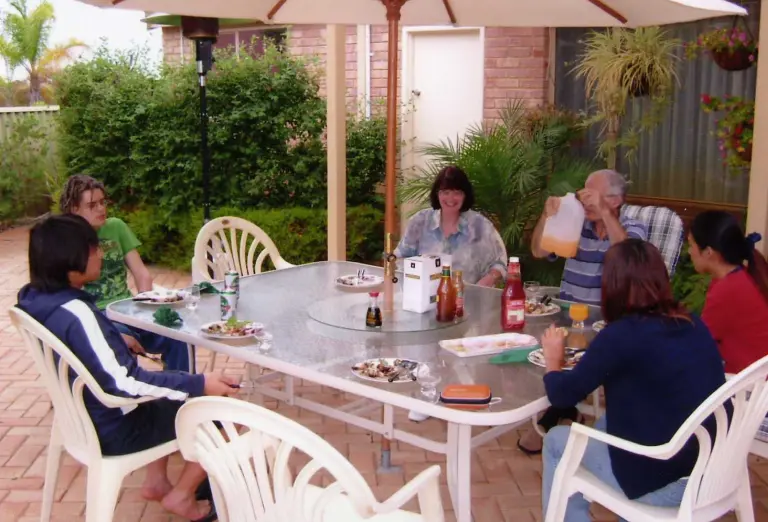Let’s be honest—budget is one of the biggest concerns when planning a long-distance trip, especially if you’re traveling for an extended period. Finding an affordable yet comfortable place to stay can save you a significant amount, freeing up your funds for sightseeing, tours, or unforgettable experiences. So, why not consider a homestay in Australia? It’s not just for international students—travelers can benefit too, and it’s more convenient than you might expect.

>> 10 free things you must do in Melbourne, Australia
What is a Homestay Like in Australia?
When you choose to stay in a homestay, you’ll typically be given a private room complete with a wardrobe and a personal bathroom. Homestays are known for being safe, clean, and welcoming. Rather than hunting for accommodation on your own, you can register through your school (if you’re a student) or via cultural exchange programs or tourism services (if you’re a traveler). These services will help match you with a host family that suits your preferences.
Once a match is found, you’ll sign a rental agreement outlining important details such as your rights and responsibilities, as well as those of your host. It’s a simple process, but one that sets clear expectations from the start.

Smart Tips for Choosing a Homestay
Australia is a culturally diverse country with residents from all over the world, particularly from Asia and Europe. One thing they have in common? A reputation for being warm and hospitable.
If your host family works full-time, offering a helping hand with light chores like cooking, cleaning, or laundry can help foster a friendly, respectful atmosphere. Keeping your space tidy is always appreciated and encourages a stronger bond with your hosts.
Many thoughtful and generous homestay families will even invite you to join them for meals—especially if you’re staying for a while. This gives you the perfect opportunity to experience local cuisine, family life, and customs up close.


>> Must-Try Foods in Australia – Don’t leave without tasting these!
Why Homestay is a Great Option for Travelers
In most cases, utilities such as electricity and water are included in the rent, and the overall cost tends to be far more budget-friendly than hotels or serviced apartments. Better still, a homestay offers genuine cultural immersion—something no hotel can match.
If you’re looking to improve your English, this is an ideal setting. Daily conversations with native speakers will do wonders for your listening and speaking skills, all while building real connections.

>> Craving real adventure? Head to New Zealand!
FAQ
What is a homestay?
A homestay is a type of accommodation where you live with a local family in their home. It’s not just a place to sleep — it’s a cultural exchange experience. Whether you’re a student, a traveler, or a working professional, staying in a homestay allows you to see daily Australian life from the inside, with all the comforts of a home environment.
Who usually stays in homestays?
Homestays in Australia are popular among:
- International students (especially high school or university exchange students)
- Working holiday travelers
- Tourists seeking immersive experiences
- Interns or language learners looking to improve their English through real-life interaction
What can I expect in a typical Australian homestay?
Every family is different, but here’s what you can typically expect:
- A private or shared room, usually furnished with a bed, desk, and storage
- Meals included (often breakfast and dinner, sometimes lunch)
- Shared access to bathroom, laundry, and kitchen
- A friendly, welcoming atmosphere with opportunities to join family activities or outings
- Exposure to Australian customs, language, and food
- Hosts often help guests adapt to local life, especially if it’s their first time in the country.
How much does a homestay in Australia cost?
Homestay prices vary depending on the city and the services offered, but typically:
- $250–$400 AUD per week (includes a room and most meals)
- Cities like Sydney, Melbourne, and Brisbane tend to be at the higher end
- You may pay extra for private bathrooms, dietary needs, or airport pickup
- Homestays are generally more affordable than hotels and more personal than renting.
Are meals and laundry included?
Yes, most homestays offer two to three meals per day, typically home-cooked. You’ll eat what the family eats — a great way to try Australian cuisine. Some hosts also allow you to cook or store your own food.
Laundry facilities are usually available once or twice a week. Ask your host about their preferences or routines.
Can I choose the type of family I stay with?
In most cases, yes. If you book through a homestay agency or student placement service, you can often indicate preferences like:
- Non-smoking households
- Families with or without children
- Pet-free homes
- Specific religious or dietary considerations
- Language preferences
- While nothing is guaranteed, hosts are carefully matched based on compatibility.
Will I have privacy?
Absolutely. Even though you’re part of the household, you’ll usually have your own room where you can study, relax, or work. However, remember you’re sharing common areas, so respect for space and schedules is key.
How safe are homestays in Australia?
Homestays are generally very safe, especially when booked through registered programs or institutions. Hosts are usually background-checked and often have experience hosting international guests. That said, always do your research, read reviews, and clarify expectations before arrival.
How long can I stay in a homestay?
You can stay anywhere from a few days to several months, depending on the agreement. Many international students stay for their entire semester or school year. Others may stay for just a week or two before moving into shared housing once they’re more familiar with the area.
What are the benefits of staying in a homestay?
- Cultural immersion: Live like a local and understand Australian traditions from the inside.
- Language practice: Great for non-native English speakers who want to improve fluency.
- Support system: Hosts often provide advice on transport, shopping, and daily life.
- Cost-effective: Meals and utilities are included, reducing overall expenses.
- Friendship: Many guests stay in touch with their host families for years.
Is it suitable for tourists, not just students?
Definitely. More travelers are choosing homestays for a more meaningful experience. Whether you’re backpacking, on a working holiday, or exploring the country for a few weeks, staying with locals gives you a deeper understanding of Australia than hotels or Airbnbs.
What should I know before arriving?
- Be open-minded and respect household rules (e.g., noise, cleanliness, curfews)
- Communicate clearly — if you have dietary restrictions, allergies, or routines, share them early
- Bring a small gift from your home country as a thank-you gesture
- Keep your space tidy and participate in daily life if invited — it’s part of the charm!
Where can I find a homestay in Australia?
You can find homestays through:
- Universities and language schools (many have official programs)
- Homestay agencies like Homestay.com, Australian Homestay Network, or StudyVision
- Travel communities or Facebook groups (make sure to verify host reliability)
Final Thoughts: A homestay in Australia isn’t just about accommodation — it’s about connection, culture, and comfort. If you’re looking for an enriching experience that goes beyond tourist attractions and helps you feel truly at home, this could be one of the best decisions you make while in Australia.






